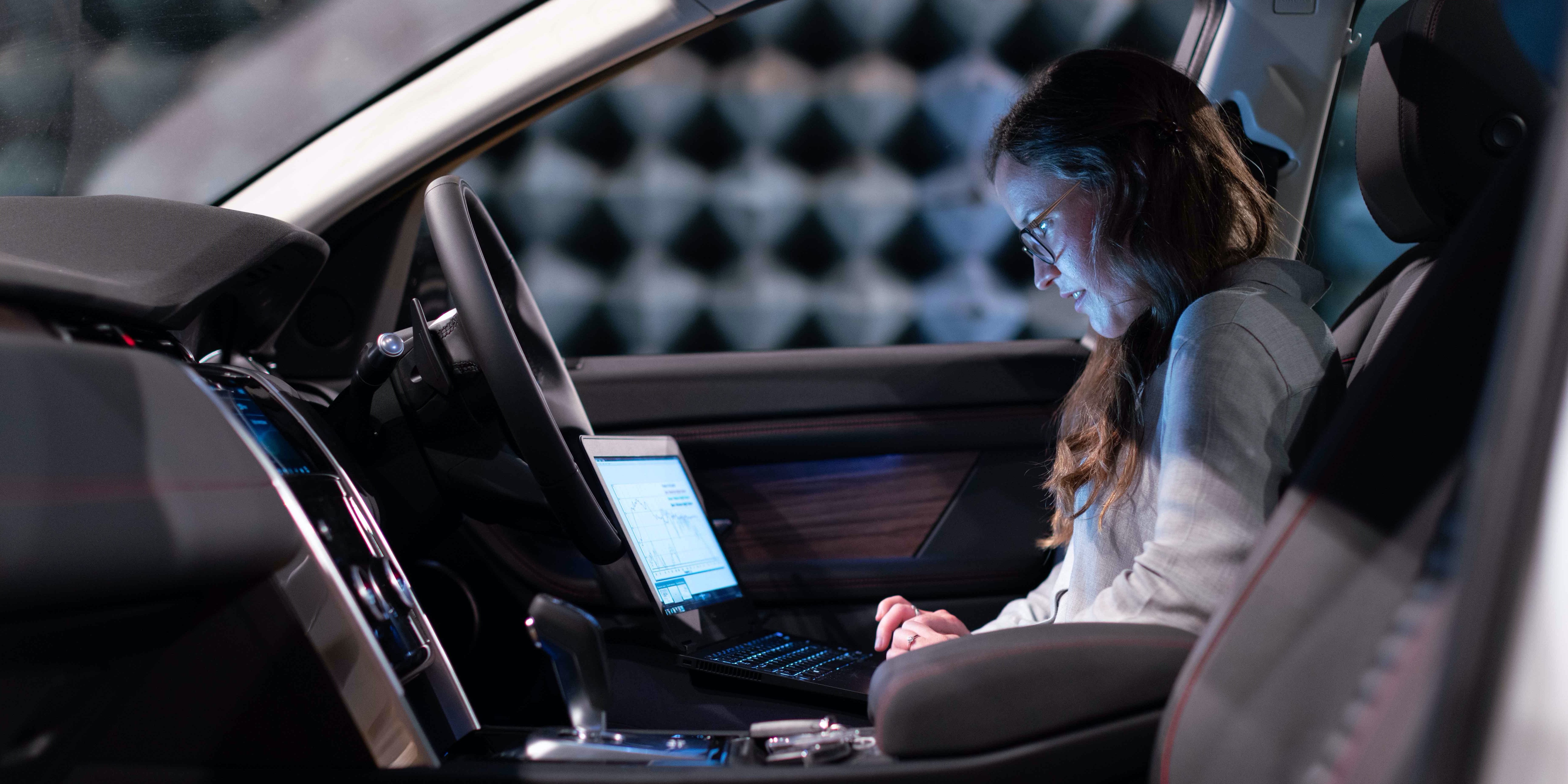
Progress through (surveillance-) technology?
What your car knows about you and what it should better keep to itself
Mileage status, tire pressure, driving behavior – nowadays, modern cars already collect these and many other data via built-in sensors and computers. With the help of this information, a complete profile of the driver can be created, but there is still little transparency and awareness of the issue. What happens if hackers access this data, and how far could they go?
In der Podcastfolge „Vorsprung durch (Überwachungs-)Technik?“ werden die Themen Datenspeicherung und -sicherheit in modernen Autos angesprochen. Viele Menschen sind diesem Thema gegenüber sehr skeptisch, da bereits in vielen Bereichen des täglichen Lebens eine große Menge Daten gesammelt werden – z. B. im Internet, beim Arzt oder bei der Bank. Die DSGVO hat die Diskussionen um die Themen Datenschutz und Überwachung weiter verschärft. Fehlende Transparenz in Bezug auf die Datensammlung und -weitergabe führt zu Unwissenheit und Unsicherheit in der Gesellschaft.
Auf den ersten Blick mögen technische Assistenzsysteme im Auto, die auf dem Speichern unzähliger Daten beruhen, viele praktische Vorteile bieten. Doch was, wenn diese in die falschen Hände geraten? Hacker*innen können theoretisch von außen auf die Bremsen des Autos zugreifen, doch wie groß ist die Gefahr, dass dies in der Praxis geschieht? Die Experten Florian Sommer und Robin Bolz vom Institut für energieeffiziente Mobilität der Hochschule Karlsruhe sind der Meinung, dass dies höchst unwahrscheinlich ist. Doch allein schon die Tatsache, dass es funktioniert, verbreitet Sorgen in der Bevölkerung.
Die beiden klären in der Folge auf, welche Daten überhaupt im Auto gespeichert werden und wer Zugriff darauf hat. Scheinbar ist nicht das Speichern an sich kritisch zu bewerten, sondern die mögliche Zweckentfremdung der Daten. Abschließend steht im Podcast folgende Frage im Mittelpunkt: Sind wir nicht schon längst gläserne Autofahrer?
Die Podcastfolge ist im Rahmen des Seminars „Softwarekatastrophen“ am Karlsruher Institut für Technologie entstanden und somit Bestandteil der Podcastreihe „Softwarekatastrophen – wie konnte das nur passieren?“
Die Interviewpartner:
- Daniel Bösch, Informatikstudent am Karlsruher Institut für Technologie
- Florian Sommer und Robin Bolz, wissenschaftliche Mitarbeiter am Institut für energieeffiziente Mobilität der Hochschule Karlsruhe Technik und Wirtschaft
Informationen zum Nachlesen:
- Die zitierten Schlagzeilen aus dem STERN, der Süddeutschen Zeitung, der PC-WELT und der WirtschaftsWoche
- Die Studie von D. Frassinelli/S. Park/S. Nürnberger: Automated Reverse Engineering and Privacy Analysis of Modern Cars
- Eine Studie vom ADAC zu konkreten Fahrzeugmodellen (Mercedes B-Klasse W246, 2011-2018 und Renault Zoe 2012)
- Einblick in die Arbeit eines IT-Sicherheitsexperten
- Projektbeschreibung von „SecForCARs“ (Security For Connected, Autonomous caRs)

You will receive our latest blog articles once a month in a newsletter.
Research issues in focus
AI at the microphone: The voice of the future?
From synthesising voices and generating entire episodes, AI is transforming digital audio. Explore the opportunities and challenges of AI at the microphone.
Do Community Notes have a party preference?
This article explores whether Community Notes effectively combat disinformation or mirror political biases, analysing distribution and rating patterns.
How People Analytics can affect the perception of fairness in the workplace
People Analytics in the workplace can improve decisions but may also heighten feelings of unfairness, impacting employee trust and workplace relationships.




